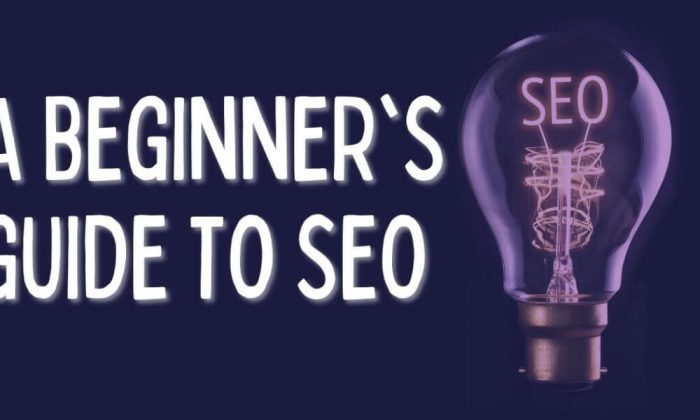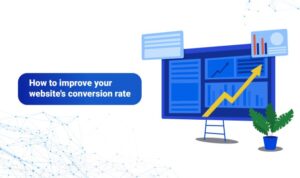SEO for Beginners – for Beginners takes center stage, inviting readers into a world of digital marketing prowess. Prepare to dive deep into the realm of and unlock the secrets to online success.
Get ready to explore the ins and outs of search engine optimization, from understanding how search engines work to mastering on-page and off-page strategies.
Importance of

is like the secret sauce that makes your website pop on the internet scene. It’s not just about ranking higher on Google (although that’s a big part), but it’s also about getting the right people to notice your site and content. Without , your website is basically a needle in a haystack. So, why is so important? Let’s break it down.
Improving Online Visibility
When you search for something online, how often do you go past the first page of Google results? Probably not often, right? That’s where comes in. By optimizing your website with the right s, meta tags, and content, you can increase your chances of showing up on that coveted first page. And the more visible you are online, the more traffic you’ll get to your site.
- helps you reach your target audience: By targeting specific s related to your business, you can attract users who are already interested in what you have to offer.
- boosts credibility and trust: When your website ranks high on search engines, users are more likely to trust your brand and see you as an authority in your industry.
- leads to better user experience: Optimizing your site for search engines also improves the overall user experience, making it easier for visitors to navigate and find what they’re looking for.
Businesses Benefiting from
Many businesses have seen significant growth and success by investing in . Take, for example, an e-commerce store that optimized its product pages for relevant s and saw a 50% increase in organic traffic. Or a local restaurant that implemented local strategies and saw a 30% boost in online reservations. These are just a few examples of how proper practices can make a real difference in a business’s bottom line.
Understanding Search Engines

Search engines are like giant libraries that help users find information on the internet. They work by crawling billions of web pages, indexing the content, and then ranking them based on relevance to a user’s search query.
Different Search Engines and Their Algorithms
Different search engines have their own algorithms for ranking websites. Some popular search engines include Google, Bing, Yahoo, and Baidu. Google, for example, uses PageRank to determine the importance of a webpage based on the number and quality of links pointing to it. Bing, on the other hand, takes into account factors like social signals and domain age.
- Google: Google’s algorithm, PageRank, focuses on backlinks and content relevance.
- Bing: Bing considers social signals and domain age in its ranking algorithm.
- Yahoo: Yahoo’s search algorithm is powered by Bing’s technology.
- Baidu: Baidu is the most popular search engine in China and uses its own ranking algorithm.
Importance of Search Engine Rankings
Having a high search engine ranking is crucial for websites as it can lead to increased visibility, traffic, and ultimately, conversions. Websites that appear on the first page of search results are more likely to be clicked on by users, making it essential for businesses to optimize their websites for search engines.
On-Page Basics
On-page refers to the optimization of individual web pages to rank higher and earn more relevant traffic in search engines. It involves optimizing both the content and HTML source code of a page.
Examples of On-Page Elements
- Meta tags: Including meta title, description, and s to provide search engines with information about the page’s content.
- Headings: Proper use of H1, H2, and other heading tags to structure content and signal its importance to search engines.
- URL structure: Creating -friendly URLs that are descriptive and contain relevant s.
- Image optimization: Adding alt text and descriptive file names to images to improve accessibility and relevance.
Tips for Optimizing On-Page Content
- research: Identify relevant s and strategically place them in titles, headings, and throughout the content.
- Quality content: Create valuable, engaging, and original content that meets the needs of your target audience.
- Mobile optimization: Ensure your website is mobile-friendly and provides a seamless user experience on all devices.
- Internal linking: Linking to other pages on your website helps search engines understand your site’s structure and improves navigation.
- Page speed: Optimize images, minimize code, and use caching to improve load times and user experience.
Off-Page Strategies
Off-page refers to the actions taken outside of your own website to impact your rankings within search engine results pages (SERPs). It involves building your website’s reputation and authority through various tactics that occur off-site.
Role of Backlinks in Off-Page
Backlinks are crucial in off-page as they serve as a vote of confidence from other websites. When reputable sites link back to your content, search engines view your site as more trustworthy and relevant. Backlinks help improve your site’s authority, credibility, and visibility in search results.
- Focus on quality over quantity when building backlinks. A few high-quality backlinks from authoritative sites can have a greater impact than numerous low-quality links.
- Diversify your backlink profile by obtaining links from a variety of sources, including industry-related websites, blogs, and social media platforms.
- Avoid spammy or manipulative tactics to acquire backlinks, as search engines can penalize your site for engaging in black hat practices.
Tips for Building a Strong Off-Page Strategy
Building a strong off-page strategy is essential for improving your site’s visibility and driving organic traffic. Here are some tips to help you enhance your off-page efforts:
- Create high-quality, shareable content that naturally attracts backlinks from authoritative websites.
- Engage with your audience on social media platforms to increase brand awareness and drive traffic to your site.
- Collaborate with influencers and industry experts to promote your content and gain valuable backlinks.
- Monitor your backlink profile regularly and disavow any toxic or spammy links that could harm your site’s reputation.
Technical Fundamentals: SEO For Beginners
Technical refers to the optimization of a website’s technical aspects to improve its search engine visibility and ranking. It plays a crucial role in ensuring that search engines can crawl, index, and understand a site effectively, ultimately enhancing its online presence.
Common Technical Elements
- Site Speed: Ensuring fast loading times for all web pages to improve user experience and search engine rankings.
- Mobile-Friendliness: Optimizing a website for mobile devices to cater to the increasing number of mobile users and meet search engine requirements.
- Structured Data: Implementing schema markup to provide search engines with additional context about the content on a website.
- XML Sitemap: Creating and submitting XML sitemaps to help search engines discover and index all relevant pages on a site.
- Robots.txt: Using a robots.txt file to control search engine crawlers’ access to specific pages or directories on a website.
Best Practices for Optimizing Technical Aspects, SEO for Beginners
- Regular Site Audits: Conducting periodic audits to identify and fix technical issues that may impact performance.
- Optimizing URLs: Creating -friendly URLs that are descriptive, concise, and include relevant s.
- Optimizing Images: Compressing images, using descriptive alt text, and implementing image sitemaps to improve image search visibility.
- SSL Certificate: Securing a website with an SSL certificate to establish a secure connection and boost search engine rankings.
- Canonical Tags: Implementing canonical tags to prevent duplicate content issues and consolidate link equity.












